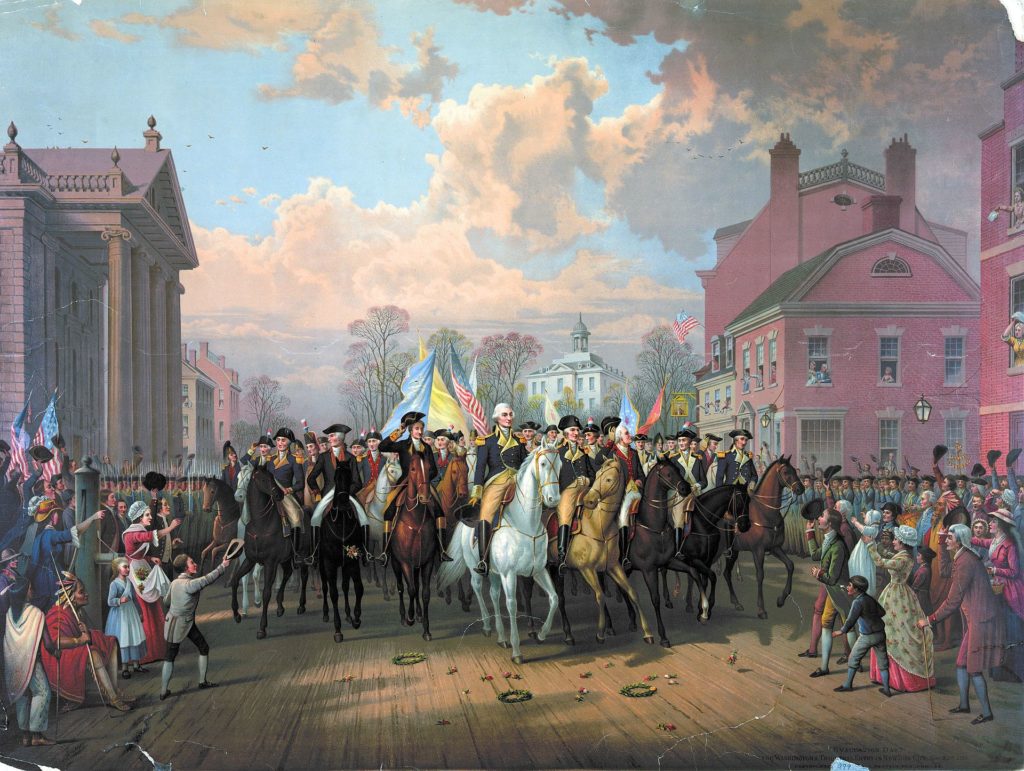Good morning.
Saturday in Whitewater will be sunny with a high of forty-two. Sunrise is 7 AM and sunset 4:24 PM, for 9h 23m 48s of daytime. The moon is a waxing crescent with 39% of its visible disk illuminated. Today is the {tooltip}three hundred eighty-first day.{end-texte}Days since Trump’s election, with 11.9.16 as the first day.{end-tooltip}

On this day in 1863, at the Battle of Missionary Ridge at Chattanooga, Tennessee, “[f]ourteen Wisconsin units — seven Wisconsin Infantry regiments and seven Wisconsin Light Artillery batteries participated in breaking the siege at Chattanooga. The 15th and 24th Wisconsin Infantry regiments were among the forces that charged up Missionary Ridge, broke through the Confederate ranks, and seized the strategic location on November 25.”
Recommended for reading in full —
Ryan Lizza reports A Russian Journalist Explains How the Kremlin Instructed Him to Cover the 2016 Election:
On a recent Saturday in November, Dimitri Skorobutov, a former editor at Russia’s largest state media company, sat in a bar in Maastricht, a college town in the Netherlands, with journalists from around the world and discussed covering Donald Trump. Skorobutov opened a packet of documents and explained that they were planning guides from Russian state media that showed how the Kremlin wanted the 2016 U.S. Presidential election covered.
Among the journalists, Skorobutov’s perspective was unique. Aside from Fox News, no network worked as hard as Rossiya, as Russian state TV is called, to boost Donald Trump and denigrate Hillary Clinton. Skorobutov, who was fired from his job after a dispute with a colleague that ended in a physical altercation, went public with his story of how Russian state media works, in June, talking to the U.S. government-funded broadcaster Radio Liberty. The organizers of the Maastricht conference learned of his story and invited him to speak. He flipped through his pages and pointed to the coverage guide for August 9, 2016, when Clinton stumbled while climbing some steps. The Kremlin wanted to play the story up big….
As is often the case with state censorship, the workings of Kremlin-controlled media, as Skorobutov described them, were far more subtle than is popularly imagined. He described a system that depended on a news staff that knew what issues to avoid and what issues to highlight rather than one that had every decision dictated to it. “We knew what is allowed or forbidden to broadcast,” he explained. Any event that included Putin or the Russian Prime Minister “must be broadcast,” while events such as “terroristic attacks, airplane crashes, arrests of politicians and officials” had to be approved by the news director or his deputy. He offered a list of embargoed subjects: “critique of the State, coming from inside or outside of Russia; all kinds of social protests, strikes, discontent of people and so on; political protests and opposition leaders, especially Alexey Navalny,” an anti-corruption figure despised by the Kremlin. Skorobutov said that he overcame censorship rules and convinced his network to cover stories only twice: for a story about a protest against the construction of a Siberian chemical plant and for one about the food poisoning of children at a kindergarten….
Tom Phillips and James Ball report Twitter Has Suspended Another 45 Suspected Propaganda Accounts After They Were Flagged By BuzzFeed News:
BuzzFeed News has uncovered a new network of suspected Twitter propaganda accounts – sharing messages about Brexit, Donald Trump, and Angela Merkel – that have close connections to the Russian-linked bot accounts identified by the social media platform in its evidence to the US Congress.
The 45 suspect accounts were uncovered through basic analysis of those that interacted or retweeted accounts cited by Twitter to Congress, yet none of them appeared on the company’s list.
The relative ease of discovery raises serious questions as to just how many Russian-linked bots may still be active on Twitter, how the company identifies and removes such accounts, and whether its process for identifying accounts for its evidence was inadequate.
Until BuzzFeed News approached Twitter on Tuesday afternoon with details of the accounts, they all remained active on the platform, though dormant. But within 24 hours, all 45 had been suspended….
Monika Bauerlein reports Journalism Is Imploding Just When We Need It Most (“But we may have one last shot at a reset”):
One of the few bright spots this past year was supposed to be the revival of journalism. And to be sure, it’s been a great time for muckraking, with newsrooms bringing home scoop after scoop on the Trump administration. Subscriptions to everything from the New York Times to Mother Jones are up. And for the first time in decades, trust in news media is rising too: Today, 54 percent of the public have confidence in journalists to tell the truth, while only 36 percent trust the president.
So: Will Donald Trump, perhaps the most anti-journalism president in modern times, actually end up saving journalism?
Here’s where the story turns more complicated. Look at this picture of newspaper circulation nationwide:
No “Trump bump” there. As a regional newspaper editor recently told me, “I showed that graph to our newsroom and said: If that line keeps going, there’s no one left working here in 10 years.” Right after that I watched a presentation on news robots—algorithms that can put together credible stories with stunningly little help from humans. It’s not at all hard to imagine newsrooms populated largely by artificial intelligence a few years hence.
And it’s not just legacy shops that are imploding. Virtually every news organization in America has seen its audience decline (and in some cases crater) since the record numbers of last winter. Some blame the Google and Facebook algorithms (could real news getting caught up in the fight against the fake stuff?). Others speculate that readers and viewers are simply tiring of the 24/7 onslaught of crazy….
But then Donald Trump came along and did the one thing that could reverse this spiral: He redrew the battle lines. He brutally humiliated reporters (especially women) who covered the campaign. He cheered his surrogates as they insisted on “alternative facts” and cast the press as “the enemy of the people.” He joked with Vladimir Putin, under whose government journalists keep mysteriously dying, about journalists being spies. Like authoritarian figures the world over, the only kind of coverage he tolerated was Hannity-style fawning.
When Trump lashed out at “fake news,” when Steve Bannon called reporters “the enemy of the people,” when a Congressional candidate body-slammed a reporter, they asked Americans to take sides—with them, or with a free, fact-oriented press. And, remarkably, a majority is coming down on the side of journalism….
(Note for Whitewater : Journalism, professional or its crude imitation, fails locally when it’s no more than stenography or boosterism. It has no future.)
Gardiner Harris reports Diplomats Sound the Alarm as They Are Pushed Out in Droves:
WASHINGTON — Of all the State Department employees who might have been vulnerable in the staff reductions that Secretary of State Rex W. Tillerson has initiated as he reshapes the department, the one person who seemed least likely to be a target was the chief of security, Bill A. Miller.
Republicans pilloried Hillary Clinton for what they claimed was her inadequate attention to security as secretary of state in the months before the deadly 2012 attacks in Benghazi, Libya. Congress even passed legislation mandating that the department’s top security official have unrestricted access to the secretary of state.
But in his first nine months in office, Mr. Tillerson turned down repeated and sometimes urgent requests from the department’s security staff to brief him, according to several former top officials in the Bureau of Diplomatic Security. Finally, Mr. Miller, the acting assistant secretary for diplomatic security, was forced to cite the law’s requirement that he be allowed to speak to Mr. Tillerson.
Mr. Miller got just five minutes with the secretary of state, the former officials said. Afterward, Mr. Miller, a career Foreign Service officer, was pushed out, joining a parade of dismissals and early retirements that has decimated the State Department’s senior ranks. Mr. Miller declined to comment….
Frontline considers Child Hunger in America:

